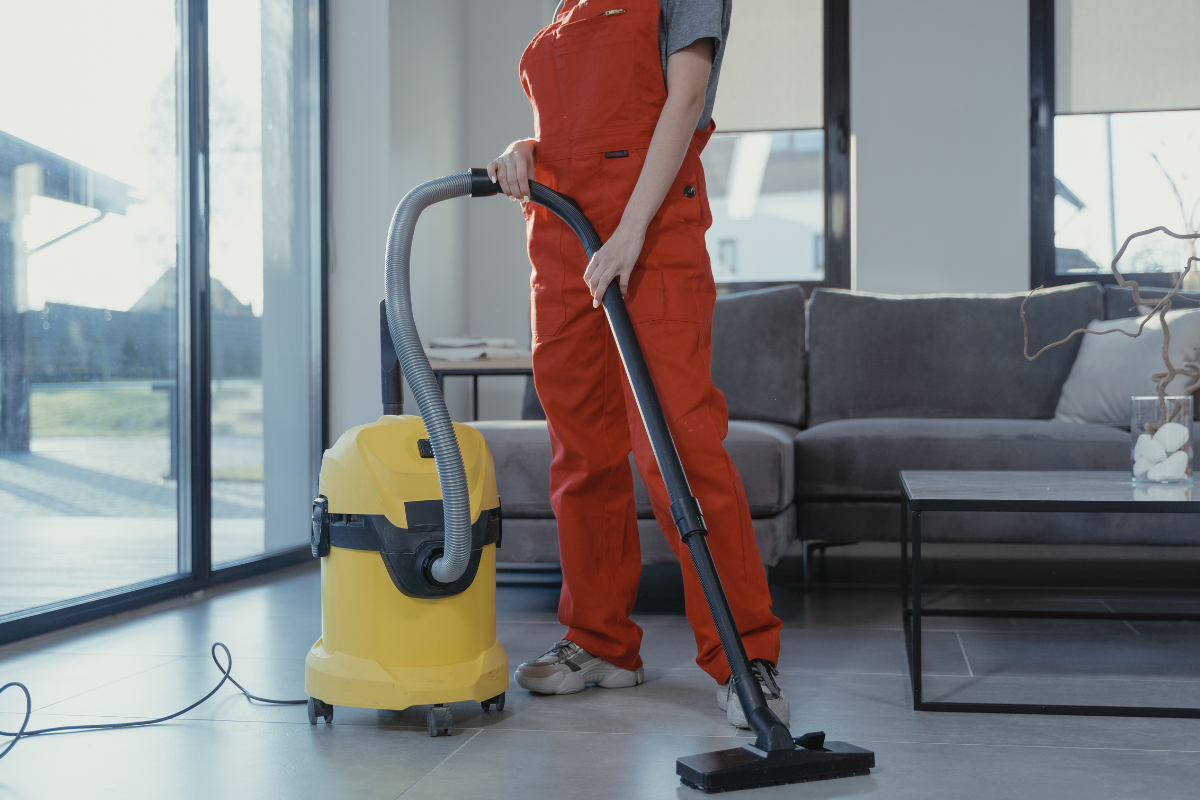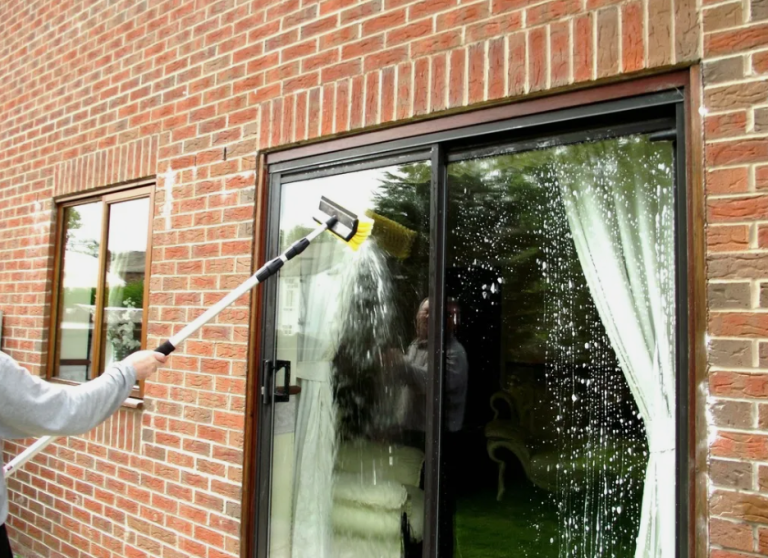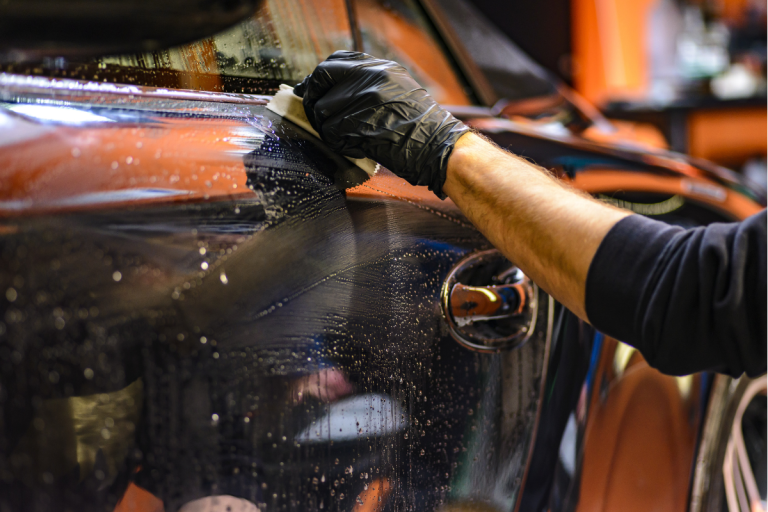How to Start a Cleaning Business in the UK (2025)
Thinking of starting a cleaning business in the UK in 2025? You’re onto a winner! Cleaning services are always in demand, whether it’s helping busy families keep their homes tidy or tackling the grime in bustling commercial spaces. With people leading busier lives than ever and businesses needing reliable upkeep, there’s no shortage of potential clients. What’s even better? You don’t need a big budget, a fancy office, or years of experience to get started.
This is a business where hard work and a bit of know-how can take you far. Whether you’re looking for a side hustle, a flexible job that fits around family commitments, or a serious shot at building a successful business, cleaning has something for everyone. It’s an opportunity to be your own boss, set your own hours, and take pride in a job well done. In this guide, we’ll walk you through everything you need to know, from the practical legal bits to smart ways to attract clients and stand out from the competition.
Why Start a Cleaning Business?
Cleaning businesses are flexible, and you can tailor them to suit your lifestyle. Whether you’re looking to clean homes, offices, or specialise in areas like holiday lets (think Airbnb properties), the opportunities are endless. With some hard work and savvy marketing, you can create a reliable income stream and even build a team to do the heavy lifting while you focus on managing the business.
Getting Legal and Staying Safe
Before you roll up your sleeves, you need to make sure everything is above board. A solid foundation is key to building trust and projecting a professional image that attracts clients. People want to hire cleaners they can rely on, especially when it comes to their homes or businesses, so taking the time to get everything in order will set you apart. From the correct insurance to a DBS certificate, these essentials not only protect you but also reassure your customers that you’re a legitimate and trustworthy professional. Here’s what you need to sort out:
- Register Your Business: You’ll need to register with HMRC as self-employed or set up a limited company.
- Insurance: Public liability insurance is a must. It protects you if something gets damaged or someone gets hurt while you’re working. If you’re hiring staff, you’ll also need employer’s liability insurance.
- DBS Check: Many clients, especially families and landlords, may ask for a Disclosure and Barring Service (DBS) certificate to prove you have a clean record.
- Health & Safety: Keep things safe and professional. Invest in protective clothing like gloves and aprons, and make sure you understand how to handle cleaning chemicals properly. Always check product labels and follow safety guidelines.
Domestic vs. Commercial Cleaning
When starting a cleaning business, one of the first big decisions you’ll face is whether to focus on domestic cleaning, commercial cleaning, or a mix of both. Each option comes with its advantages and challenges, so it’s worth thinking about what suits your skills, schedule, and goals. Domestic cleaning typically involves working in people’s homes, helping them maintain a tidy and welcoming space, while commercial cleaning focuses on offices, shops, and other business premises that need regular upkeep.
Your choice might depend on your preferences, the local demand in your area, or even the hours you want to work. For instance, domestic cleaning often happens during the day, while commercial jobs may require early mornings, evenings, or weekends. It’s also worth considering the type of clients you’d like to work with—some prefer the personal touch of helping families, while others enjoy the steadiness of corporate contracts. Both routes can be rewarding, so let’s break down the perks of each to help you decide where to start.
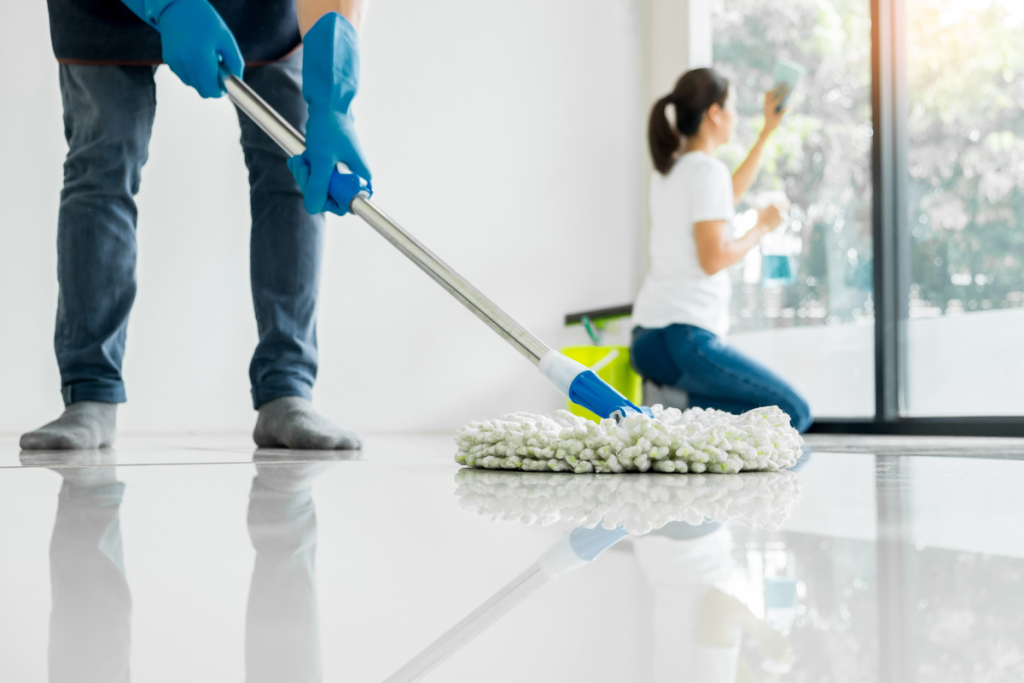
Marketing Your Cleaning Business
Getting clients for your cleaning business is all about making your presence known and showcasing why people should choose you. With the right mix of online tools and traditional methods, you can build a strong reputation and attract steady work. Here’s how to do it:
- Facebook Groups and Pages
Social media is a game-changer for local businesses, and Facebook is one of the best platforms for getting the word out. Join local Facebook groups where people often look for recommendations or advertise their services. Post regularly about your cleaning business, highlighting special offers or showing before-and-after photos of your work (with permission from clients, of course). Create a dedicated Facebook page for your business that includes your contact details, a description of your services, and clear, high-quality photos. Encourage happy clients to leave reviews—positive feedback from real customers goes a long way in building trust. - Google My Business
Registering your business with Google My Business is a must. It’s free, and it ensures your business shows up when locals search for cleaners. Add plenty of details, including your location, services, and working hours, and upload photos that showcase your professionalism. Encourage customers to leave reviews here as well, as a strong rating will make your business stand out even more. - Website Design
A professional-looking website adds credibility and acts as a one-stop shop for potential clients. Even a simple website can make a huge difference. Include key details like the services you offer, pricing (if applicable), your contact information, and a clear call-to-action such as “Book Your Clean Today!” Don’t forget to feature testimonials from happy customers, as these build trust. Make sure your site is mobile-friendly—most people will be looking you up on their phones. For extra polish, consider investing in basic social media management tools that integrate with your website, making it easier for clients to contact you or follow you on other platforms. - Social Media Management
If you want to take your online presence up a notch, consider using social media management tools to schedule posts, track engagement, and maintain a professional brand image. Consistency is key—regularly post helpful cleaning tips, showcase your services and share reviews. Platforms like Instagram can also be great for showing off the visual side of your work, such as sparkling kitchens and spotless offices. - Leafleting
Traditional methods still have their place in marketing, especially for a local cleaning business. Design clear, attractive leaflets highlighting your services and contact details, and drop them through letterboxes in your target areas. Focus on neighbourhoods with lots of families or businesses, as they’re often in need of regular cleaning services. Consistency is key, so make leafleting a regular part of your marketing efforts. - Customer Reviews
Never underestimate the power of good customer reviews. Whether it’s on Facebook, Google My Business, or your website, glowing testimonials from happy clients can help you stand out in a crowded market. Don’t be shy about asking satisfied customers to leave feedback—it’s a small effort for them but a huge boost for your credibility. If you’re just starting out, consider offering an introductory discount in exchange for a review to build your initial portfolio of feedback.
By combining these strategies, you’ll not only get your name out there but also build trust and credibility with potential clients. A professional image, strong online presence, and word-of-mouth recommendations can take your cleaning business to the next level.
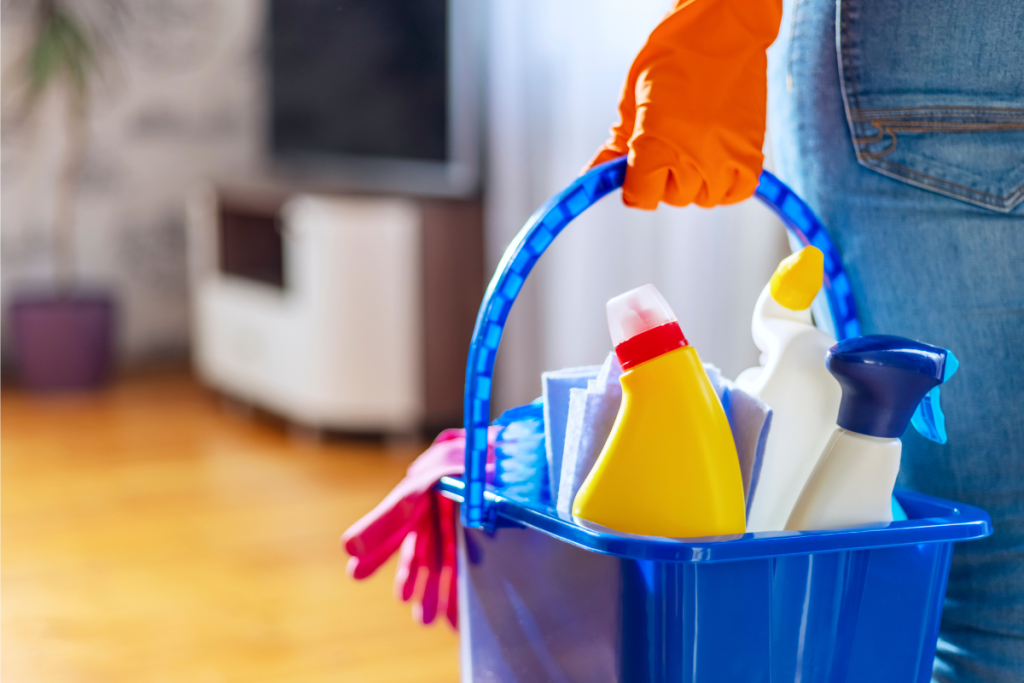
Essential Tools and Equipment
To start a cleaning business, having the right tools and equipment is essential for delivering high-quality results and building a professional image. Clients will judge your work based on the outcome, so investing in reliable, effective tools is a smart move from day one. Here’s what you’ll need:
- Mop, Bucket, and Vacuum Cleaner
These are your bread and butter. Look for a durable mop with interchangeable heads and a sturdy bucket with a wringer to make your job easier. A lightweight, high-powered vacuum cleaner is also essential, especially if you’re tackling homes with pets or commercial spaces with lots of foot traffic. A cordless vacuum can be handy for tight spaces and quick clean-ups. - Microfibre Cloths and Cleaning Sprays
Microfibre cloths are a game-changer for streak-free cleaning. They’re perfect for wiping down surfaces, polishing glass, and trapping dust. Stock up on these in various colours so you can assign them to different areas (e.g., kitchen, bathroom) to avoid cross-contamination. Pair them with versatile cleaning sprays, such as multi-surface and antibacterial options, to tackle a range of tasks efficiently. - Rubber Gloves and Protective Gear
Keeping yourself safe while working is non-negotiable. Rubber gloves protect your hands from harsh chemicals and bacteria, while aprons or overalls can prevent your clothes from getting dirty or damaged. For tougher jobs involving strong detergents or allergens, consider adding face masks and safety goggles to your kit. - Specialist Detergents and Products
While general-purpose cleaning products work for most tasks, you’ll need specialist solutions for more challenging jobs. Carpet cleaning detergents, upholstery sprays, and limescale removers are invaluable for deep cleaning and tackling stubborn stains. It’s also a good idea to stock eco-friendly options for clients who prefer a greener approach. - Additional Tools
As your business grows, you might need to expand your toolkit. Items like squeegees for window cleaning, floor polishers for large spaces, or steam cleaners for deep sanitisation can open up new opportunities and make your work more efficient.
Remember, quality matters. Cheap tools might save you money upfront, but they’ll wear out quickly and could even damage your reputation. Invest in durable, professional-grade equipment that lasts—you’ll thank yourself later.
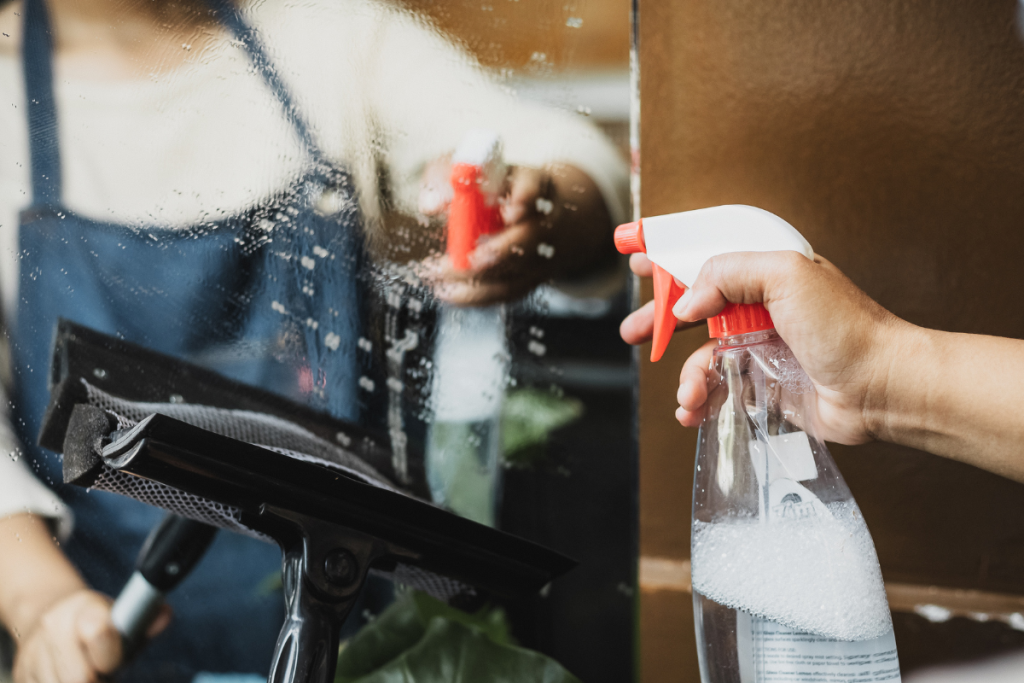
Tips for Success
Building a successful cleaning business takes more than just scrubbing floors. It’s about creating a professional, reliable service that keeps clients coming back. Here are some tips to help you stand out and grow:
- Pricing
Pricing your services competitively is important, especially when you’re just starting out. Research local competitors to see what they charge for similar jobs. Keep in mind that pricing too low may undervalue your work, while pricing too high could scare off potential clients. Strike a balance that reflects your quality and experience. Offering introductory discounts or package deals for regular clients can be an effective way to attract business and build loyalty. The pricing table below is intended as a rough guide and prices will vary depending on your area.
| Fixed-rate | Typical Price Range (incl. VAT) | Estimated Average Cost |
|---|---|---|
| Agency house cleaning (per hour) | £15 – £25 | £20 |
| Independent house cleaning (per hour) | £10 – £20 | £15 |
| Weekly cleaner for 3 hours | Fixed rate | £45 |
| Carpet cleaning (small room) | £34 – £66 | £50 |
| Post-construction cleaning (per hour) | £15 – £25 | £20 |
| End-of-tenancy deep clean | £79 – £199 | £139 |
| Window cleaning | £20 – £70 | £45 |
- Reliability
Your reputation hinges on reliability. Turning up on time, finishing jobs as promised, and maintaining high standards will earn you trust and repeat business. Clients value cleaners who are dependable and consistent, so never underestimate the power of punctuality and attention to detail. Over time, word of mouth can become one of your strongest marketing tools if you prove you’re someone clients can count on. - Expanding Your Services
Once you’ve built a solid client base, think about ways to expand your business. Hiring staff can help you take on more clients and larger jobs. Make sure to train them well to ensure they uphold the same standards that built your reputation. You could also offer specialised services like carpet cleaning, window washing, or even post-renovation cleaning to attract a wider range of clients. Diversifying your offerings can make your business more versatile and profitable. - Communication
Keep the lines of communication open with your clients. Whether it’s confirming appointments, asking for feedback, or providing updates on services, good communication shows professionalism and builds trust. Use tools like email or messaging apps to stay organised and respond promptly.
By focusing on quality, reliability, and client satisfaction, you can establish yourself as a trusted name in the cleaning business. Success won’t come overnight, but with steady effort and smart decisions, your cleaning venture can grow into something truly rewarding.
Conclusion: Is Starting a Cleaning Business Worth it in 2025?
Starting a cleaning business might seem like hard graft, but it’s one of those ventures where effort truly pays off. With the right planning, tools, and a bit of elbow grease, you can build a business that’s not only profitable but also flexible and rewarding. Whether you’re helping busy families keep their homes in order, maintaining spotless offices for professionals, or making holiday lets shine for their next guests, the opportunities in this industry are endless.
Now it’s over to you—grab those cleaning supplies, roll up your sleeves, and start building your cleaning empire!

